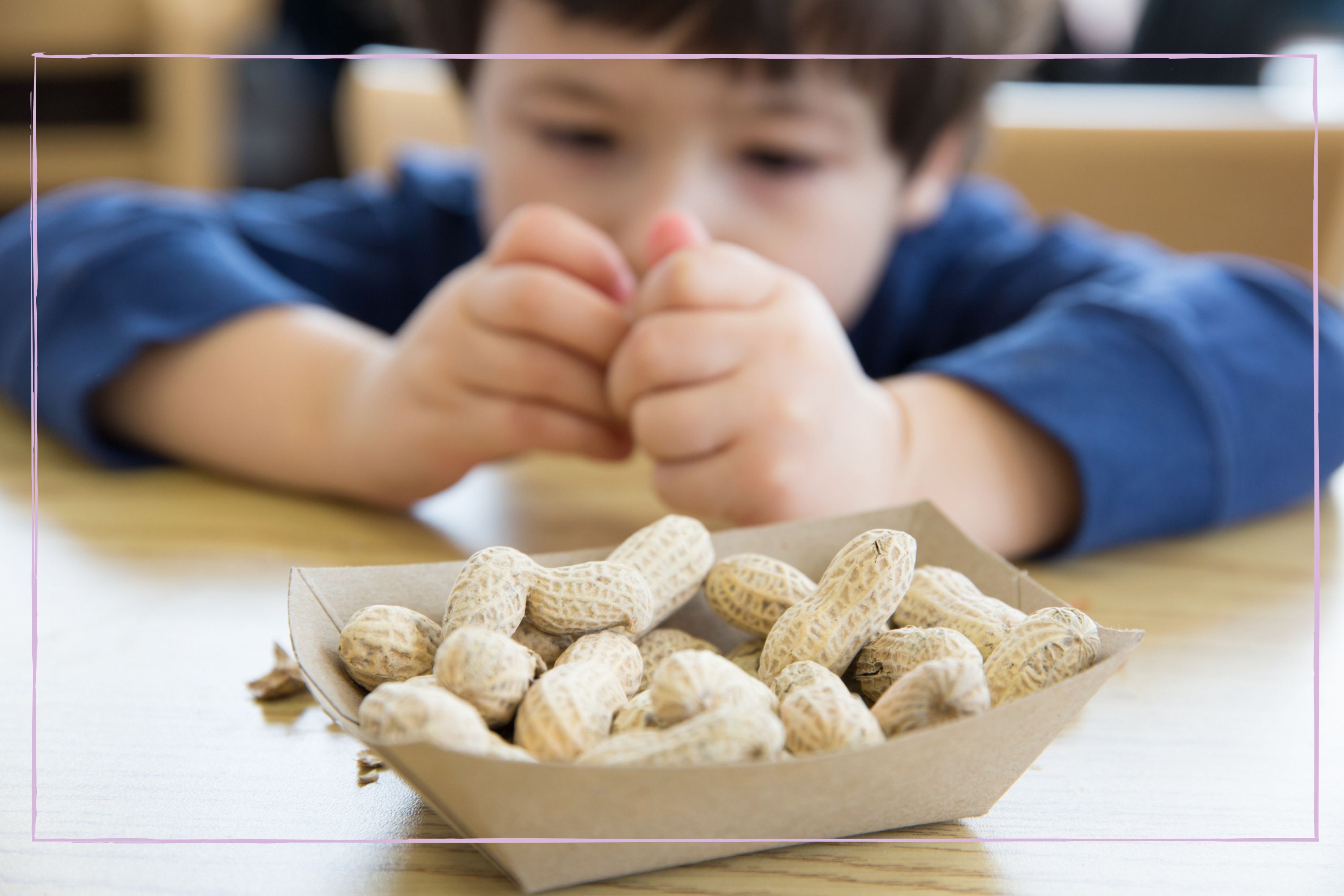4 ways to help your teen handle boredom over the summer holidays (#3 could be life-changing)
When cries of 'I'm bored' is like nails across a blackboard


Parenting expert and author of How to Raise a Teen Sarah Ockwell-Smith writes about why teens struggle with boredom over the long summer holidays and ways parents can plan to help them tackle it.
When my kids were young, the top three words that elicited a nails dragging across a blackboard response from me were “Mum, I’m bored!.” While I looked forward to long summer holidays, with imagined picture-perfect picnics, country walks, craft activities, baking and sunny days in the garden all with happy smiling children, the reality looked very different. Instead, my house would be full of moaning, and sibling bickering and frequently left wondering how to handle tantrums (mostly coming from me). The financial cost of trying to keep children entertained is high, especially in a cost-of-living crisis. Research by Trustpilot has found that the average family spend £635 over the six-week summer holidays trying to entertain their children. This sum is simply out of reach for many families, and even when you do plough cash into activities, children still complain they’re bored.
I had rose-tinted visions of the tween and teen years. I thought my children would spend hours with their noses buried in a book like I did at their age, or perhaps they would meet up with their friends to go on lengthy exploring adventures. The one thing I was not prepared for was that they still seemed to rely on me for their entertainment.
That’s the thing with parenting, it’s filled with angst and self-doubt. I look back now and realise I had always done a good job, even in the days when I worried that social services would come and take them away after a neighbour reported us for the screaming and squabbling (thankfully a fear that never materialised). I also learned a very important lesson – that children, including tweens and teens need to be bored.
What can you do if your tween or teen doesn’t share your enthusiasm for welcoming boredom? Here are my top tips:
Ideas for how to handle teen boredom
- Share control of planning
- Suggest a project
- Encourage entrepreneurship
- Value volunteering
- Champion downtime
1. Share control of planning
Encourage them to take control of some of the planning, like I did with my children (scroll down to read all about my experiment). Give them a budget, travel options, and some diary dates when you’re free and let them explore the possibilities. Taking ownership of making plans is not only a great skill for the future, but it also fills time in itself.
2. Suggest a project
Give them a project. Can they redecorate their room? Do up an old bike? Take on an allotment? Teach themselves a musical instrument? Learn a new language? Making it into a challenge against other family members or friends adds in an extra level of excitement.

3. Encourage entrepreneurship
Foster entrepreneurship. They may not be able to work until they’re 16 now, but they can use the time to make some money. Maybe starting a new business, flipping items (buying and selling second-hand on Vinted, eBay or Marketplace), making YouTube videos to monetise in the future, writing an E-Book to self-publish on Amazon. The list is endless.
GoodtoKnow Newsletter
Parenting advice, hot topics, best buys and family finance tips delivered straight to your inbox.
4. Value volunteering
Offering up their services for one or two days a week is a great time-filler, confidence-booster and a great addition to their CV, or uni application, for the future. Anything from weeding the local area, visiting elderly care homes, and reading to residents, to offering help sort items in local charity shops (most would welcome a young eye looking over donations, particularly things like trainers that may be valuable).
5. Champion downtime
Teach them to embrace downtime. They may call it boredom, but others call it mindfulness, or meditation. Encourage them to feel their irritating emotions and imagine letting them go. They could use an app with a free trial, or just practice some basic mindfulness techniques. Learning to sit with emotions and breathe into calmness and stillness is an invaluable technique for the future.
"The exhaustion of trying to entertain them [as kids] had become a new mental exhaustion of trying to make them do something productive"
Allowing your tweens and teens to be bored is a gift. Granted, it may not feel like it at the time, but through boredom you are encouraging their problem-solving skills, their creativity and self-esteem. Great ideas tend to come about when you have time to think and ponder, not when you are being constantly entertained rushing from activity to activity. Boredom also teaches children and teens an important life lesson about finances, that it’s not always possible to do all the things you want to do and that budgeting and having ‘no spend days’ is a reality of life that they are going to have to contend with as an adult when they have their own budgets to run.
We live in a culture that is obsessed with scheduling every moment of our children’s lives, whatever their age, in the mistaken belief that it’s good for them, but it isn’t, and it’s not good for us either. Slowing the pace a little allows the magic to happen (after the moans and squabbles that is).
My experiment (it's worth a try)
One summer, when they were aged between 8 and 13, I came up with the idea of letting them plan our time. I drew a 6-week grid on a huge sheet of paper, gave them some marker pens, told them our budget (which was way less than £635!), and let them plan out our time. The experiment went surprisingly well, they each enjoyed having a say, choosing an activity or two they liked and working out the best way to stretch the budget. Did it stop the complaining? Absolutely not, but it helped take the edge off a little.
As they got older, my children (now young adults) relied on me less to fill their time, they still complained of boredom, but a new frustration occurred. Now, it seemed that they were happy to spend the whole day in bed, or in front of screens. In an ironic twist, I found myself wistful for the days when they were like little caged puppies desperately yapping at the door to get out every day. The exhaustion of trying to entertain them had been taken over by a new mental exhaustion of trying to make them do something productive and worrying that I should be doing more to encourage it.
Main takeaway
Remember, boredom is a good thing for developing minds, however much they may complain, remind yourself that you are giving your children a gift worth far more than the financial outlay you may have been tempted to spend previously.
For many of us, the art of allowing boredom in our children is also an important reminder for us to slow down ourselves. You don’t need to fill every moment for them and you don’t need to do it for yourself either. It’s OK to rest, it’s OK to do nothing. It’s OK to be unproductive, in fact it’s necessary if you’re a parent, because it gives you time to decompress and fill up your energy and patience tank, which ultimately will make you a much better parent. Embracing nothingness and boredom this summer is perhaps one of the most valuable things your whole family can do.
Sarah is one of our GoodtoKnow experts, a mum-of-four and author or many a child development book, including tweens and teens, she creates engaging, relatable and helpful teen content such as busting the myth that 'teenagers are lazy' will make you feel relief, and tips to get your teen to revise will make you realise it's not just you. Plus her insight into why teenagers never leave their room is hugely relatable - send to anyone in your life with a teen.

Sarah Ockwell-Smith is a mother of four young adults. She has a background in Psychology and clinical research and has also worked as an antenatal teacher and doula. Sarah has written fifteen childcare books, covering everything from newborns to teenagers, with a special emphasis on ‘gentle parenting’. Sarah regularly contributes to National TV and radio, including Good Morning Britain and BBC Radio 4 and 5, she has also written for national publications including The Guardian, The Express, The Daily Mail, The IPaper and The HuffPost. Sarah lives with her family, two rescue dogs, cats and chickens in North Essex. Sarah's newest book How to raise a teen is due to hit shelves July 4th 2024.
-
 12 things parents of allergy children really want everyone to know
12 things parents of allergy children really want everyone to knowWe spoke to some parents who have children with allergies - they want everyone to know just how serious and debilitating it can be when your child suffers allergic reactions to food.
By Lucy Wigley Published
-
 Want to feel old? Watch hilarious video of kids baffled by the school tech their parents used
Want to feel old? Watch hilarious video of kids baffled by the school tech their parents usedMost schoolchildren have no idea what the common classroom tech from just a generation ago was used for, let alone how to use it
By Charlie Elizabeth Culverhouse Published
-
 Back to school photo checklist - here's what parents need to think about first, from an expert
Back to school photo checklist - here's what parents need to think about first, from an expertBefore you post that adorable back to school photo online for your friends and family to see, a parenting expert wants you to think carefully about how much the picture reveals.
By Lucy Wigley Published
-
 4 phrases to help kids settle on first day back at school, according to a child development expert
4 phrases to help kids settle on first day back at school, according to a child development expertIt's natural for kids to struggle with some 'separation anxiety' when returning to the classroom, and dealing with it is so much easier with expert insight
By Charlie Elizabeth Culverhouse Published
-
 Oasis reunite - the 15 facts your kids need to know about 90s band
Oasis reunite - the 15 facts your kids need to know about 90s bandEducate your kids on music's most infamous falling out and get them just as excited as you are for the Oasis reunion
By Charlie Elizabeth Culverhouse Published
-
 5 surprising ways rushing your kids out the door can be damaging, according to experts
5 surprising ways rushing your kids out the door can be damaging, according to expertsAre you always rushing your kids out the door? Life is a constantly hectic schedule and although you need to be places on time, it can actually be damaging to kids.
By Lucy Wigley Published
-
 10 ways Millennial parents are ‘breaking the cycle’ - and teaching kids life lessons they were never taught
10 ways Millennial parents are ‘breaking the cycle’ - and teaching kids life lessons they were never taughtBeing a 'cycle-breaker' is vital for parents who want their kids to learn life lessons they were never taught
By Charlie Elizabeth Culverhouse Published
-
 Plans to teach children how to spot ‘disinformation, fake news and putrid conspiracy theories’ in schools unveiled
Plans to teach children how to spot ‘disinformation, fake news and putrid conspiracy theories’ in schools unveiledIn a bid to tackle how children interpret what they see online and how they spot fake news, the government has announced how this will be handled in schools.
By Lucy Wigley Published